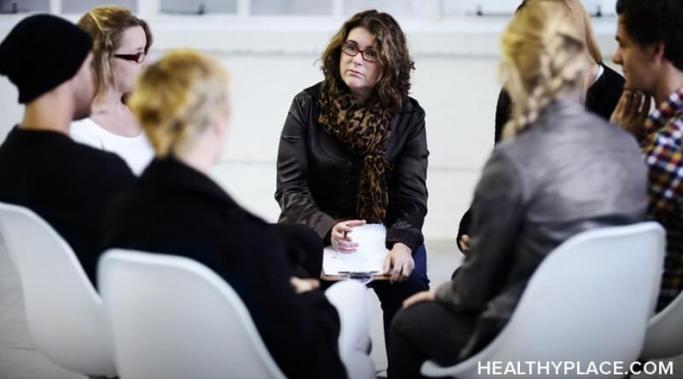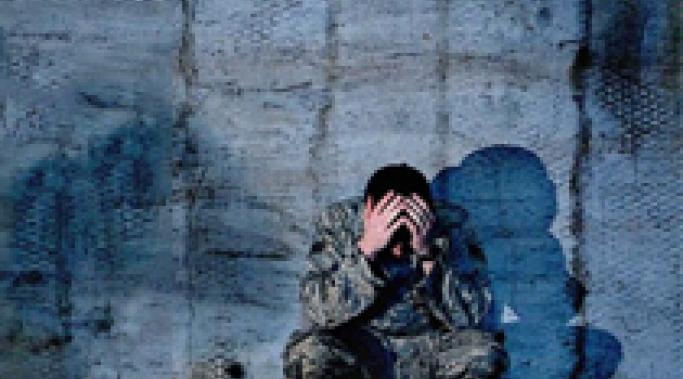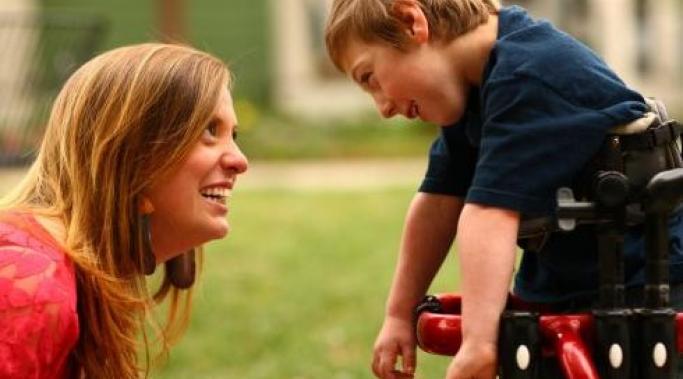Blogs
A common theme amongst people with schizophrenia is that our thoughts are being manipulated by unseen forces. We often find ourselves obsessed with the idea that our thoughts are being erased, inserted and manipulated. Psychiatrists consider these delusions particularly bizarre and to have no basis in reality. I would argue otherwise.
In the world of posttraumatic stress disorder (PTSD) we're all in the same space together (as survivors), but so often we feel enormously separate, don't we? PTSD symptoms and the lifestyle they create open a void between you and everyone else.
New research, however, points out how important it can be to have a social support network to prevent PTSD.
Your attitude can make you appear insecure, and make others want to avoid you. Learn how to adjust your insecure attitude with these tips.
Patricia and I have both written before about the long, slow process of coming to acceptance of your body in your eating disorder recovery. However, it occurred to me that one of the most helpful things in my early recovery from anorexia, was a list of very down-to-earth, very practical do's and don't's for dealing with my changing body. Some of these are things I still use today if I'm having a rough body image day.
Several years ago I did an inpatient treatment program for depression. At the end of my stay at the hospital, I was asked to complete a survey on my experience there. The form had room for comments and suggestions and as I filled it out, I realized I had a lot to say about my depression treatment.
Human beings are much like beautiful gardens. Within each of us are many different types of lovely flowers. Everyone’s garden is unique to him or her; indeed, we have different flowers—different personality traits, strengths and talents, and interests and abilities. That said, all of our inner gardens, like the dirt-and-plant sort, have a similarity. They can become peppered with, and even overrun by, weeds. For people, a very common, very noxious weed is anxiety. What happens when our inner gardens become infested with the weed of anxiety, and what can we do about it?
When one enters the military a thought that may cross the mind of the young soldier, or their loved ones, might be the possibility of dying in combat. This is a reasonable concern for all involved.
But what people rarely are concerned about is the risk of death when one gets out of the military. While it might seem, to civilians, like this would be the least likely time in a person’s life to die by suicide, the numbers tell a completely different story.
Children who have physical disabilities take a long time to come out of their cocoons and become confident individuals. Some of them never do. These are the children who also suffer from some mental disorders along with physical disabilities. Some of these mental disorders are present since birth while some develop as the child grows up. A difficult childhood is, unfortunately, a given with them. Let’s look at how we can turn things around for them and make special needs kids mentally strong.
We all want to be happy. However, many of us fight a battle that makes happiness not an easy thing to hold onto. We tend to stress over the journey to finding happiness or to finding ourselves. Some people cut or burn themselves because they are lost on this path and are at a place in their lives where they think they need to have all of these answers. When these answers aren’t crystal clear, it can cause unneeded anxiety and stress.
You can’t always search for happiness or devote your life to finding the ideal person you want to be. Sometimes those answers find you first and it’s up to you to open your eyes and realize it.
When people know my diagnosis of bipolar and anxiety disorders — and given my line of work, most do — they tend to assign all of my actions to said diagnosis. Confrontation and disagreement, as an example, turn into signs that I am escalating to a manic state state or having an anxiety or panic attack. But anxiety disorder and confrontation don’t exactly go hand in and hand.









